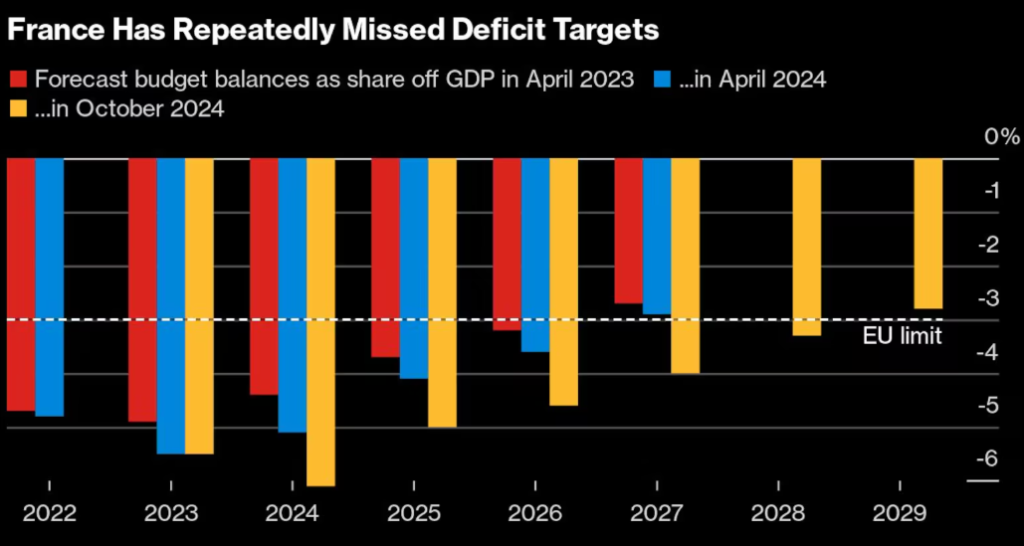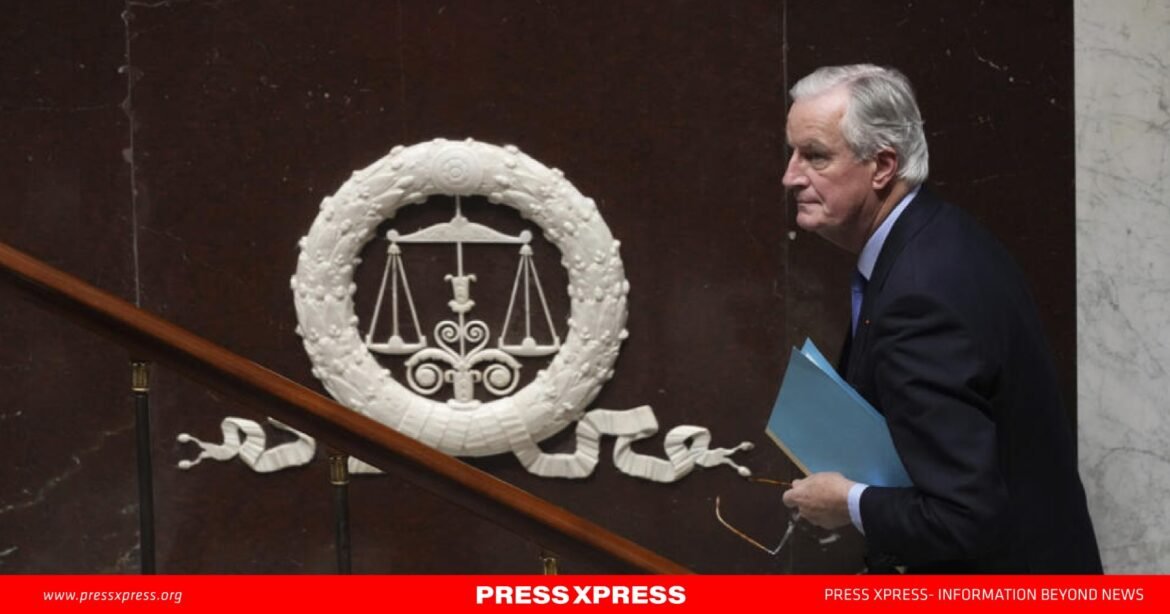The fall of French Prime Minister Michel Barnier’s government on Wednesday has plunged the country deeper into political turmoil, raising fears of prolonged instability. Barnier’s ousting came after a no-confidence vote in the National Assembly, where an unlikely alliance of the left-wing New Popular Front (NFP) and the far-right National Rally (RN) joined forces to topple his administration.
The vote, which saw 331 lawmakers support the motion — well above the 288 required for passage — signals the most significant political upheaval in France since the 1960s. For many, the collapse of Barnier’s government is not the resolution of the crisis, but rather the start of an even more uncertain and turbulent political period.
The French political crisis dates back to earlier this year when President Emmanuel Macron, in a bid to strengthen his centrist position, called for snap parliamentary elections. The move, however, backfired, leaving Macron with a diminished parliamentary majority. Instead of consolidating power, the election results fractured the National Assembly, emboldening left-wing and far-right factions. With these factions now firmly entrenched, Macron’s appointment of Barnier as prime minister in September proved to be a temporary fix that ultimately failed to prevent the growing polarization of French politics.
A Tumultuous Path to Barnier’s Ouster
Barnier’s resignation on Thursday morning followed intense weeks of negotiations and political drama, primarily surrounding the contentious 2025 budget. The proposed budget includes tax hikes and public spending cuts, measures that have been met with staunch opposition from both the left and the far-right. The political infighting reached its peak on December 4, when the no-confidence vote confirmed Barnier’s government had lost the support of parliament.
The vote was decisive, with the 331 votes in favour of the motion far surpassing the required 288. Analysts have pointed out that this is not only a loss for Barnier, but also a loss for Macron’s presidency, which now faces the daunting task of navigating a deeply divided National Assembly with no clear path forward.
“It’s clear that France is entering a new period of political instability,” Charlotte de Montpellier, senior economist at ING, wrote in a note following the vote. She added that Macron would face immense challenges in appointing a new prime minister capable of gaining enough parliamentary support to avoid a similar fate.
The Road Ahead for Macron and France
With Barnier’s resignation, President Macron is under intense pressure to nominate a new prime minister quickly. Reports suggest that Macron hopes to have someone in place by the weekend, when the re-opening of the Notre Dame Cathedral in Paris will be attended by world leaders, including U.S. President-elect Donald Trump.
But finding a successor who can unite France’s fractured parliament is no easy task. Among the names being discussed are Defence Minister Sébastien Lecornu, centrist leader François Bayrou, and former Prime Minister Bernard Cazeneuve. However, analysts caution that any new prime minister may only serve as a stopgap until the next round of parliamentary elections, which are expected in July 2025.
Mujtaba Rahman of Eurasia Group noted that whoever takes over the role of prime minister will face two primary tasks: pushing through a 2024 budget rollover and attempting to renegotiate Barnier’s proposed 2025 budget. However, this will require significant compromises with the political factions in parliament, something that could prove to be an “impossible task” under the current climate.
Economic and Fiscal Implications
The uncertainty surrounding France’s political future carries significant economic risks. France’s fiscal position is already precarious, with the budget deficit forecast to reach 6.1% of GDP in 2024. If the political impasse persists, the deficit could grow even larger in 2025. While a provisional budget may help stave off a government shutdown, it will do little to address France’s long-term fiscal challenges.

Economists are concerned that the lack of political cohesion will undermine efforts to tackle the country’s growing public debt. The possibility of a temporary budget rollover may delay essential reforms, leaving France’s economy at risk of stagnation.
“Without a clear resolution, the situation remains highly unstable,” said Holger Schmieding, chief economist at Berenberg Bank. “A lack of fiscal reform and continuing political paralysis are likely to weigh heavily on both business and consumer confidence, with potential long-term consequences for growth and investment.”
In response to the growing political uncertainty, markets have so far remained relatively calm. France’s 10-year government bond yield held steady at 2.9% on Thursday, well below the levels seen in Greece during times of debt crisis. However, analysts warn that this calm may not last. If Macron faces growing pressure to call an early presidential election, market volatility could increase.
A Year of Turmoil
As the political crisis deepens, the outlook for France’s economy becomes increasingly uncertain. With a deeply divided National Assembly and a fractured political system, analysts predict that the country will remain in a state of flux for the foreseeable future. “The political confrontation between the left, right, and centre is unlikely to be resolved anytime soon,” Rahman said. “France is facing its deepest political crisis in decades, and the road to stability could be long and fraught with difficulty.”
The immediate concern remains the 2025 budget. While a temporary budget extension might avert a shutdown, it does little to address the underlying fiscal problems. Analysts warn that the inability to implement meaningful fiscal reforms could result in a further deterioration of public finances, placing even more pressure on the next government.
Looking ahead, France’s political instability is expected to continue shaping both its domestic policies and its economic trajectory. The next few months will be crucial in determining whether Macron can stabilize his government or whether France will be caught in an extended period of political gridlock.


